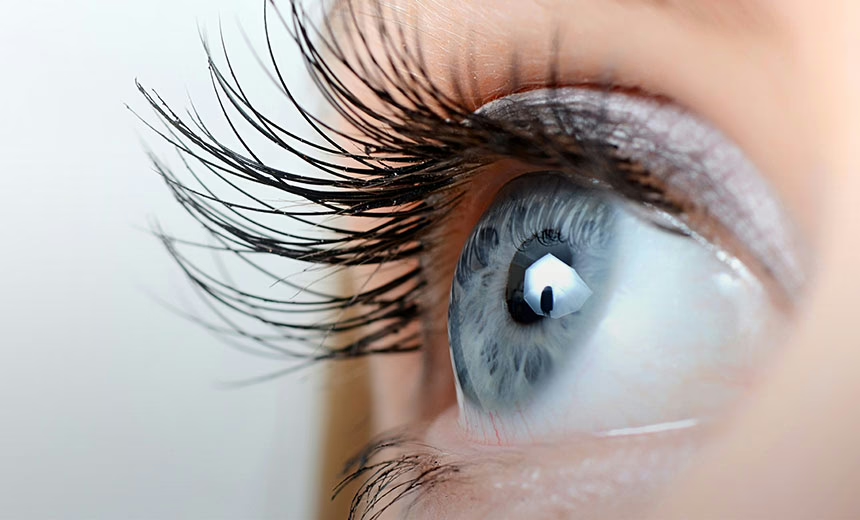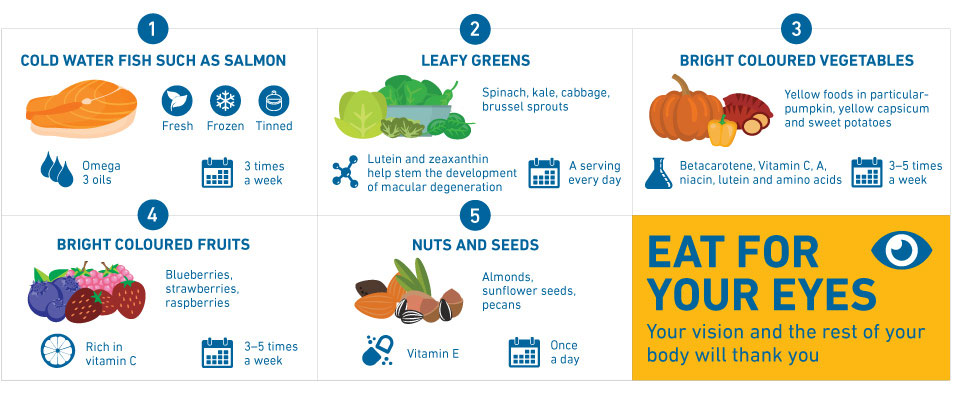"*" indicates required fields

General eye health

Maintaining good eye health is important throughout your life. In addition to having regular eye checks with an optometrist, you should follow these tips to help keep your eyes healthy.
Wear protective eyewear
Common household chores and DIY projects around the home result in thousands of eye accidents every year. You should wear high-quality protective eyewear when playing sports or doing activities such as mowing the lawn, using hand tools or spray painting. Protective eyewear includes safety glasses and goggles, safety shields and eye guards. Depending on your occupation, your employer may be required to supply protective eyewear in order to provide a safe work environment.
Quit smoking
Smoking is bad for your health, including the health of your eyes. Smoking greatly increases the risk of developing a retinal disease (e.g. age-related macular degeneration) and cataracts, worsens existing vision problems and can cause optic nerve damage, leading to blindness.
Protect your eyes from UV rays
The sun’s harmful rays can cause a number of eye conditions, including cataracts, eye cancers, photokeratitis (eye sunburn) and pterygium (Surfer’s Eye). Good-quality sunglasses, especially ones that are wraparound with polarised lenses, are a great way of avoiding the damage caused by bright sunlight. When purchasing sunglasses, look for ones that block out 99–100% of both UVA and UVB radiation. A wide-brimmed hat should also be worn to help shield your eyes. Avoid looking directly at the sun as you may end up with permanent damage to your eyes.
Avoid flash burns
Exposure to a welder’s torch, reflection off water or snow, a sunlamp in a tanning salon or looking directly at extremely powerful lights, such as a photographer’s halogen flood lamp, can cause a flash burn on your eyes. Protective eyewear should always be worn in any of these situations. Flash burns of the eye can be thought of like sunburn and can cause a painful inflammation of the cornea. If the burn isn’t too serious, it can heal itself after a few days. If more serious, it must be treated quickly as it may lead to vision loss, especially if it becomes infected. If a flash burn is suspected, see a doctor as soon as possible.
Take breaks from the computer
Spending a lot of time at the computer or focusing intently on something is linked to eye fatigue and a decrease in blinking. Try the 20-20-20 rule – every 20 minutes, look 20 feet (roughly 6 metres) away for 20 seconds. This can help reduce eye strain and encourage blinking.
Use contact lenses as directed
Incorrect use of contact lenses can be bad for your eyes. Make sure you:
- Always clean your hands first to avoid the risk of infection
- Check your contacts for any debris, tears or defects before use
- Insert and remove lenses as directed by your eye care professional
- Use the correct contact lens solution
- Never clean or store your contact lenses in tap water or saliva because of the risk of infection
- Clean and change your storage case regularly
- Don’t use contact lenses for periods longer than that recommended by the manufacturer
- Remove your contacts immediately if you feel any discomfort while wearing them
- Never sleep with your contacts in
- Always carry a pair of glasses with you.
Don’t rub your eyes
Though it may seem harmless, rubbing your eyes can cause vision problems. If you are prone to rubbing your eyes on a regular basis, it can increase eye pressure and/or damage the cornea. In some cases, eye rubbing can weaken the structure of the cornea and cause it to become more conical in shape, like a rugby ball. This condition is known as keratoconus and can lead to significant distortion of vision.
Throw away old makeup
Our hands and skin carry all kinds of bacteria, which can be transferred to our eyes via makeup. Cosmetic eye products (e.g. eye shadows, eyeliners, mascara and foundation) become unhygienic over time. They should be replaced every three months, and makeup brushes should be thoroughly cleaned with hot water and soap on a regular basis. People who wear contact lenses need to be especially careful about using clean eye makeup. Do not share eye makeup with others, as this further increases the risk of infection.
Eat your way to healthy eyes
A healthy, balanced diet is essential for maintaining good eyesight. You can lower your risk of developing eye diseases such as macular degeneration by eating the following foods regularly.

Maintain a healthy weight
There is a clear link between excessive weight and the development of several eye diseases. Extra weight is known to increase blood pressure which can put stress on the delicate blood vessels in your eyes. Damage to these blood vessels can cause vision problems. Being overweight or obese also increases your risk of developing diabetes and other medical conditions, which can lead to eye conditions such as diabetic retinopathy, age-related macular degeneration and glaucoma.
Know your family’s medical history
Many eye diseases and conditions are hereditary – that is, the increased risk of developing the condition is inherited in your genes. If someone in your family has been diagnosed with an eye disease, you may be at higher risk of developing it yourself. It’s important to make sure all of your healthcare providers know your family’s medical history. This is particularly true if a family member has been diagnosed with an eye condition.
Get regular eye checks
Taking these steps to keep your eyes healthy is important, but it’s equally important to get your eyes checked by an optometrist regularly, even if you don’t notice anything wrong with your vision. Optometrists don’t only prescribe corrective glasses and contact lenses. They check the overall health of your eyes and can refer you to an ophthalmologist if necessary. Not all eye conditions have obvious symptoms and early detection of eye conditions can save your sight.
The information on this page is general in nature. All medical and surgical procedures have potential benefits and risks. Consult your ophthalmologist for specific medical advice.
Date last reviewed: 2025-10-28 | Date for next review: 2027-10-28
